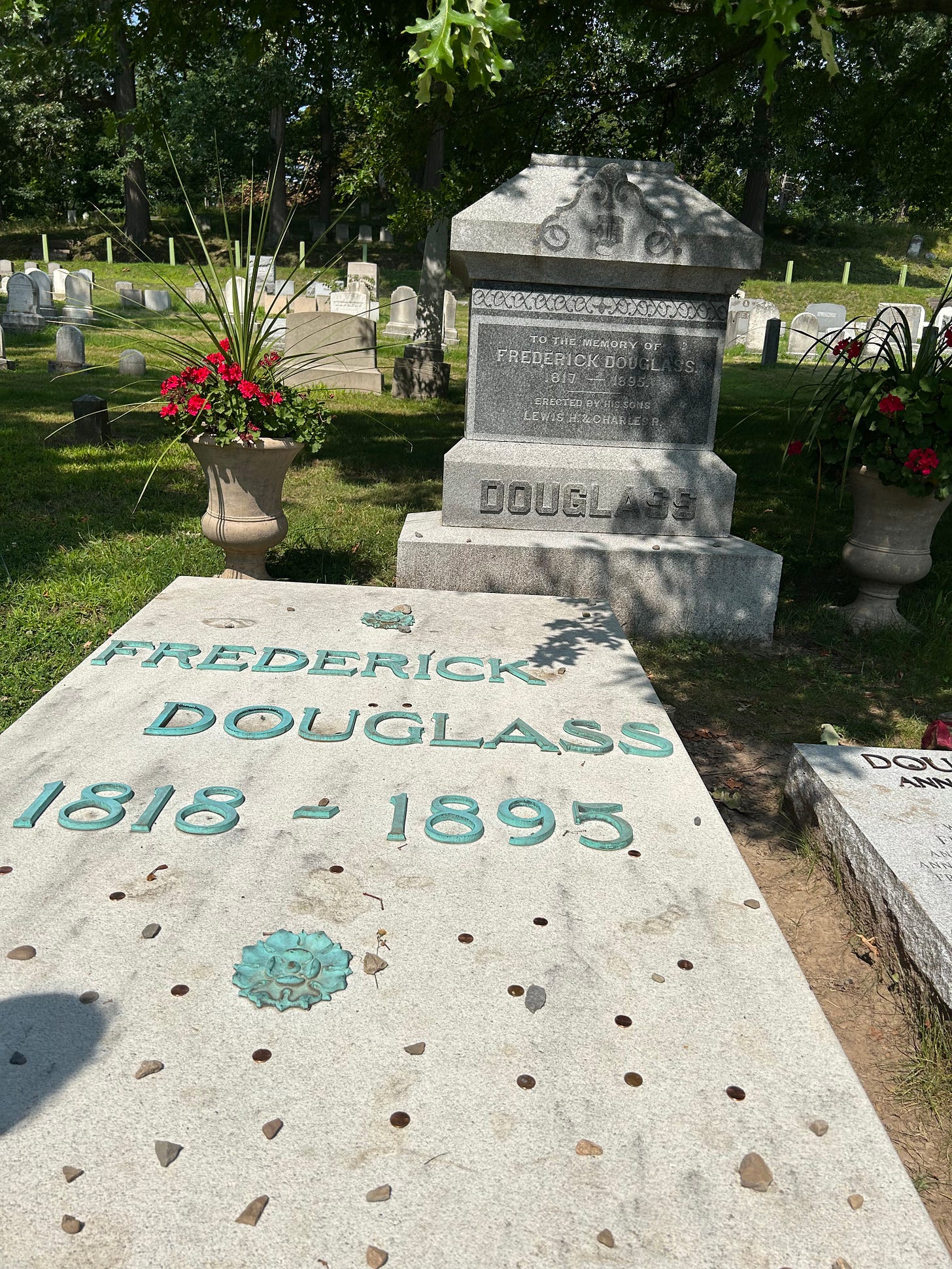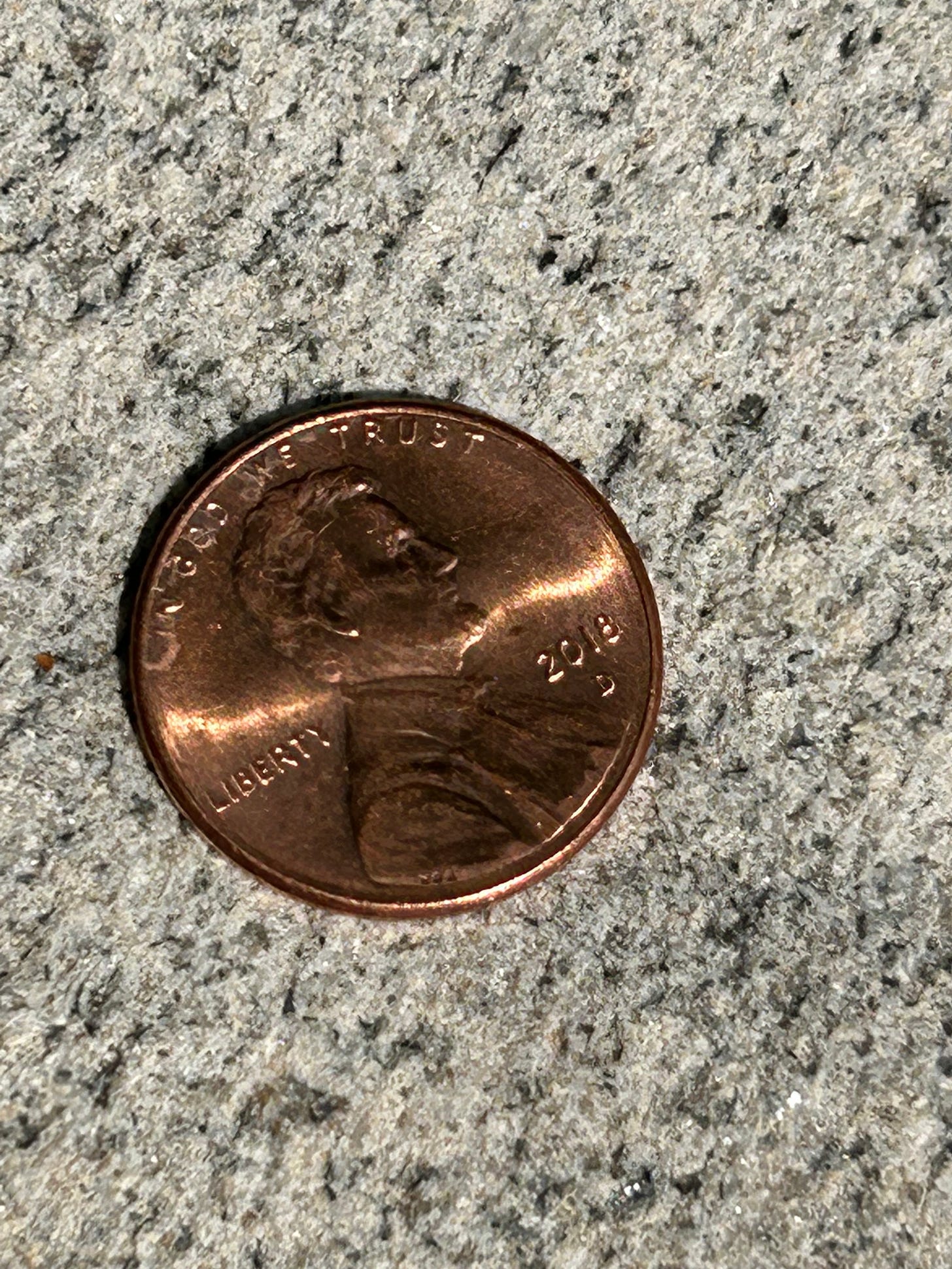Updated 12/5/23
Differ We Must is now well out into the world. The biography tells Abraham Lincoln’s life story through his meetings with people who disagreed with him. Lincoln’s navigation of his divided society speaks to our divided society, so I’m exploring the parallels in this column.
If you plan to buy Differ We Must for yourself or someone you love in this holiday season, it’s a great time to order at one of the links you will find here.
I was in Rochester, New York last summer and had a chance to pay my respects to the character who appears in the book more than anyone other than Lincoln himself: Frederick Douglass, who is buried in Mt. Hope Cemetery.
Douglass, born in 1818, escaped from slavery in Maryland as a young man. He lived for a time in New England, then relocated to Rochester by the late 1840’s, where he edited an antislavery newspaper.
Along with this physical journey, Douglass took a political one. In New England he was an acolyte of the abolitionist newspaper editor William Lloyd Garrison, who said that slavery so corrupted the government that it was morally wrong to take part in the system. Garrisonians refused to vote, burned copies of the Constitution and even called for the North to separate from Southern states where slavery was practiced.
But when he moved to Rochester, Douglass began charting a diffeent path, which I learned while researching my previous book, Imperfect Union. He eventually concluded that the Constitution was not a fundamentally proslavery document—that slavery could be ended within it.
A Black man could vote in New York State (so long as he owned $250 in property, a requirement that did not apply to white men) and Douglass decided to exercise this power. He also exercised his pen, using his newspaper to support abolitionist political parties that ran candidates for office.
His political evolution was one of several events that alienated him from Garrison. His former friends among the Garrisonians saw him as a sellout. He had betrayed their principles, so they publicly attacked him and even smeared his reputation for years afterward, publicizing his close relations with women other than his wife.
Douglass seemed to enjoy no reward for this. He said he was using the tools available to undermine slavery in Southern states; but it was so deeply entrenched that no party calling for outright abolition had a chance to win a national election. Of the two mainstream parties at the time, Democrats were actively proslavery and Whigs, at best, passively accepted the institution, though each party had an antislavery wing among its Northern lawmakers.
Douglass supported small third parties, which did favor abolition. They received some votes in presidential elections in the 1840’s and 1850’s, but with limited effect.
In 1856, Douglass made another leap. He dropped his support of a purely abolitionist presidential candidate to back a new party: the Republicans. Recognizing that slavery was impossible to eliminate for the moment, the Republican Party called for it to be contained. Their platform aimed to restrict slavery’s spread into Western territories, while admitting that it could not legally be touched in Southern states that already practiced it. This new party was seen as mainstream and viable, and Douglass threw himself behind its first presidential nominee, John C. Frémont.
Douglass said his principles were unchanged, and he had found the most practical way to advance them. “Right antislavery action is that which deals the severest deadliest blow upon slavery that can be given at that particular time.”
Frémont lost — but the 1856 election established Republicans as one of the two main parties, eclipsing the Whigs and rivaling the Democrats. It set up Abraham Lincoln’s victory in 1860, making him the first Republican president. Douglass’s pragmatism made a difference in his divided time, and offers guidance for our own.
Differ We Must tells the next phase of Douglass’s story: his disagreements with Lincoln, and their 1863 meeting to talk over their differences. They would become linked in history—arguably the two most important Americans of their century, if not beyond.
While visiting Douglass’s grave, I discovered a fitting memento of their partnership. In the photo above, you can see that visitors leave stones on the tomb, as is common at many graves. Other visitors leave something else: Lincoln pennies.
Thanks for reading Differ We Must, my exploration of our modern differences. If you come along for the book Differ We Must, which you can do at this link, I hope you find Lincoln’s story as astonishing and inspiring as I did while learning it.





